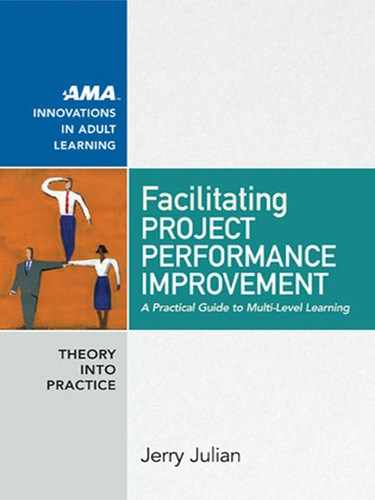116 Roles
American Management Association
www.amanet.org
stored on intranet portals for use across multiple projects. Templates and
systems are forms of boundary objects that facilitate knowledge transfer
through processes involving participation and rei cation (Wenger, 1998).
Consistent with the ndings of Marc Antoni et al. (2005), process knowl-
edge resides in templates, checklists, manuals, and guidelines, represent-
ing an accumulation of experience in project delivery.
Drawing on the work of Maurizio Zollo and Sidney Winter (2002) and
Martha Feldman and Brian Pentland (2003), Bresnen et al. (2005) claim that
organizational learning “concerns how change is accomplished through
the development of capabilities tied to the production and reproduction
of new organizational routines” (p. 29). Adopting this perspective, PMO
leaders can therefore be viewed as knowledge brokers who, through the
establishment of both retrospective and prospective collective brokering
processes, help their organizations learn from past project experiences by
embedding process knowledge into organizational routines that can be
transferred to new or existing projects.
The revised conceptual framework informs the cross- project and or-
ganizational learning literature in two ways. First, previous researchers
have pointed to the potentially broader applicability of process knowl-
edge than of product knowledge, suggesting that it may be a more useful
mechanism by which to transfer knowledge from one project to the next
(Antoni et al., 2005; Newell et al., 2006). This study con rms that process
knowledge can indeed be useful in the project environment, as it demon-
strates how PMO leaders utilize process knowledge in the form of project
methodologies, tools, and templates to inform the work of prospective
project teams.
A second way in which the revised conceptual framework informs the
literature is by demonstrating that PMOs can be viewed as a way to fa-
cilitate organizational learning in project environments. As discussed in
Chapter 1, Marsick and Watkins (1999) claim that organizational learning
can occur if two criteria are satis ed: (1) Individuals, either appointed by
management or anointed by followers, “take their learning back to the sys-
tem,” and (2) the system has “structures, processes and a culture in place
to embed and support organizational learning” (p. 12). This study demon-
strates that PMO leaders can in fact bring learning “back to the system”
and that they routinely establish processes, structures, and systems that
embed this learning across project teams within their organizations.
..................Content has been hidden....................
You can't read the all page of ebook, please click here login for view all page.
